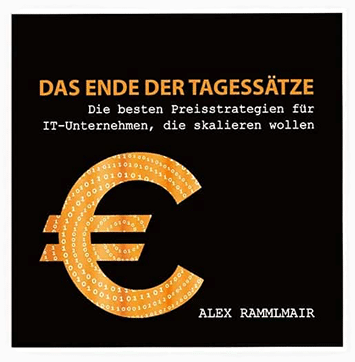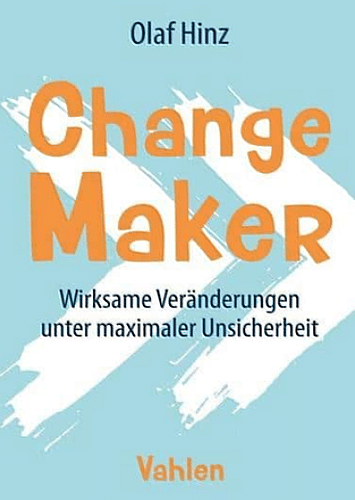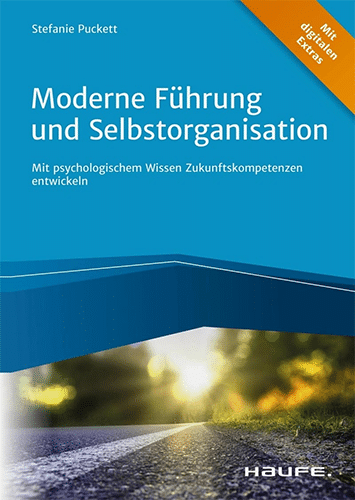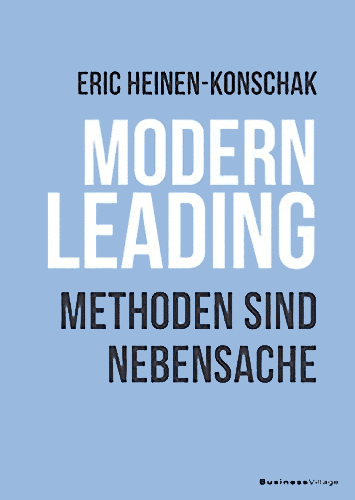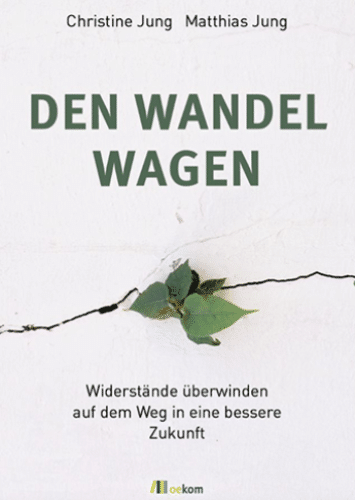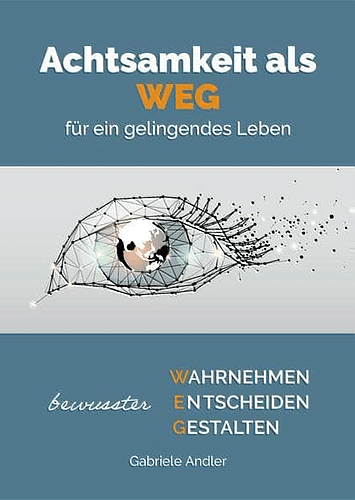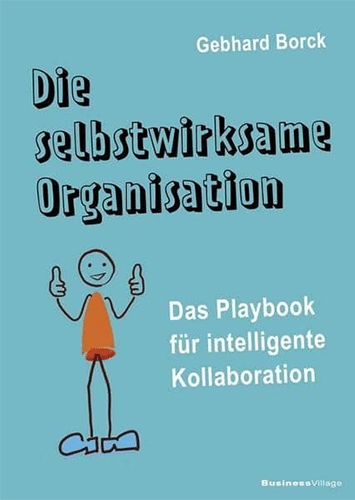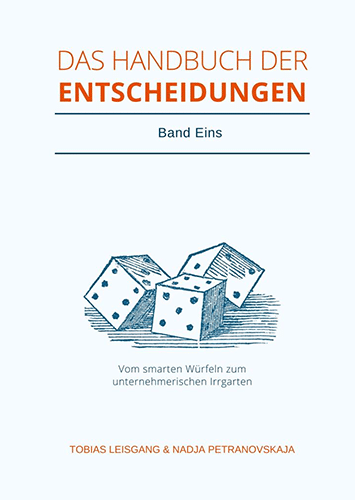Rating: Wonderful!
“He who boasts is not to be trusted.” – Lao-Tse
“Life would be so wonderful if only we knew what to do with it.” – Greta Garbo
“Louis, I think this is the beginning of a wonderful friendship.” – Richard “Rick” Blaine aka Humphrey Bogart in Casablanca
Over the past weeks and months, guest authors have recommended various books here on the blog. Many of our wonderful authors have published their own books, but no one has recommended even one of those. It is time to change this. It’s time for three specific questions to Alex Rammlmair, Olaf Hinz, Dr Stefanie Puckett, Dr Eric Heinen-Konschak, Christine Jung, Gabriele Andler, Gebhard Borck and Tobias Leisgang. And it’s time for wonderful books.
The end of daily rates
(Das Ende der Tagessaetze)
The best pricing strategies for IT companies that want to scale up
(Die besten Preisstrategien für IT-Unternehmen, die skalieren wollen)
Alex Rammlmair
Alex: In my work over the last few years, I have noticed that one problem in particular is causing problems for many IT companies: How can I grow with my company if I can’t find more employees? Most companies could currently do much more business, but they don’t have the necessary employees and they can’t get them on the labour market. The demand for IT specialists is much greater than the supply. Many companies have to be happy if they can compensate for their departures.
But you probably can’t solve that problem either, can you?
Alex: That’s right. That’s why I want to show alternatives for companies that want to continue to grow. Companies can scale turnover and profit if they separate turnover and expenses. Or in other words, they have to get away from hourly and daily rates. Instead, sell the outcome of the work or the value it creates for the client in doing so.
And how do you sell this “value” as a company?
Alex: I wish I could explain that in 3 sentences now. But I can’t, that’s why I wrote a book about it. But you can read it in 2-3 hours. Possibly the best time investment you can make as an IT entrepreneur this year 😉
Here you can find more information about the book “Das Ende der Tagessaetze”.
Change Maker
Effective change under maximum uncertainty
(Wirksame Veraenderungen unter maximaler Unsicherheit)
Olaf Hinz
Olaf: I wrote a book about change because there are a lot of “this is how you have to do it” guides that don’t fit in today’s dynamic, uncertain and disruptive world. They probably didn’t fit back then either, now that I think about it.
In any case, my aim was to show in practice how change can succeed even under stormy conditions and which interventions have proven successful in my 20 years of practice. That is why Change Maker is not a thick textbook, but a lean workbook.
Who should ideally read the book?
Olaf: It is for change agents and managers who accompany/operate a change. On the topics that often come up there, such as.
- how change makes sense (purpose),
- how to design change,
- how to use resistance, which accompanies every transformation,
- how I stage change,
- how New Work and self-organisation work,
- how I effectively accompany change processes.
For each of the topics there is a short introduction and then a set of interventions and approaches that have proven successful in my practice.
Here you can find more information about the book “Change Maker”.
Modern leadership and self-organisation
(Moderne Fuehrung und Selbstorganisation)
Developing future competencies with psychological knowledge
(Mit psychologischem Wissen Zukunftskompetenzen entwickeln)
Dr Stefanie Puckett
Stefanie: My ambition was to write a book for effective, self-directed learning. A kind of “Fit for the Future of Work” guide that shows how key competences can be built and how you can develop yourself and your learning and future skills. This includes critical thinking as well as effective relationship building at work, self-organisation in a team or even strengthening your general learning ability: a workbook with information, psychological “nuggets”, challenges and exercises, digital extras and the whole thing illustrated to make reading more fun.
Why did you write the book?
Stefanie: In conversations about my last books “Agile Leadership” and “The Code of Agile Organisations”, I was asked again and again whether I could recommend a book on the topic of “Future Competences” that provides concrete help in developing competences such as creativity, empathy, self-leadership or networking, or in promoting them among employees. I didn’t have a book tip that would also cover the psychological basis of competence acquisition and future competences in particular. So I wanted to tackle it.
The second topic was self-organisation. For clients and readers who were concerned with introducing (more) agile ways of working, the topic of self-organisation and self-leadership was often in the foreground; there was a lot of uncertainty here. This was despite the fact that organising ourselves is actually something we do every day – at least outside the company. So I started to collect and prepare tools, knowledge and tips from my work with managers, teams and organisations, but also from psychology.
And who should read the book?
Stefanie: The book is two-pronged. As a workbook for personal development on the one hand and as a workbook for future-oriented leadership on the other hand. If you want to support other people in developing future competencies, the best place to start is with yourself. Thus, the book is aimed at anyone who wants to actively deal with their own development and with key competences for the future of work and who wants to shape their own path. And also to those who want to accompany others in their role as leaders.
Here you can find more information about the book “Moderne Fuehrung und Selbstorganisation”.
Modern leading
Methods are a minor matter
(Methoden sind Nebensache)
Dr Eric Heinen-Konschak
Eric: It’s about how to act effectively in the important and everyday situations as a leader! This thought is the common thread in my book. Using concrete examples from my leadership practice, I give answers to most of the challenges of everyday leadership. I systematically cover all areas: from leadership of the self to leadership of employees to leadership of organisations. Relevant practical examples are presented in an entertaining and honest manner and in line with the latest research. It is particularly important to me that my experiences are easy to implement and understand. It is about principles and about few, but very broadly applicable and effective methods.
For whom did you write it?
Eric: For managers who want to become better. In my opinion, it doesn’t matter whether they are purely technical or disciplinary leaders. It is for people who are new to the leadership role, but I have also had experienced leaders tell me that my book has given them valuable ideas.
Why did you write it?
Eric: Out of boredom! Yes, really, that was my external reason. In the first Corona summer I had too much free time and a newsletter fluttered into my inbox: In three steps to a book. And then I started writing a concept. And in the process I realised that it is an inner concern of mine to pass on my experiences on the subject of leadership.
Here you can find more information about the book “Modern Leading”.
Daring change
(Den Wandel wagen)
Overcoming resistance for a better future (Widerstände überwinden für eine bessere Zukunft)
Christine Jung und Matthias Jung
Christine: The book came about through a question from my husband during a walk. “I have an idea in my head. Shall we write a book together?” Interestingly, his idea generated resonance in me and I thought about what my part could be. From then on, the inspiration machine was running at full speed.
You decided to write essays and separate your contributions from each other. Why did you do that?
Christine: We quickly realised how different our ideas were and asked if there was a common denominator. We found it in our common starting point, Frithjof Bergmann, the forefather of New Work. His work had a great and life-changing influence on both of us. However, we are pursuing different professional paths. So it seemed to make more sense to us to remain true to our respective specialisations – qualified pedagogue/coach and theologian/KDA pastor – and to write from our respective perspectives. We want to show how much we are determined by our respective life experiences and imprints. If we understand what and how led to a certain attitude, to a certain stance, then we have a chance for a real encounter. This also includes our feelings and emotions that we have as human beings. If we show them, we become touchable, it is a chance to connect. That’s what I want, that’s what we want to exemplify, even if it cost me a lot of courage.
The range of your essays is wide. Which topics do you address?
Christine: They are topics that relate to social issues and open up new perspectives. Keywords here are circular economy, strong and weak relationships or a new perspective on state financing and solidarity-based action. In general, it is about a future worth living and what contribution we can make to it. Particularly with the essence game I have developed, which is intended to help us do work that we really really want to do, work that brings us joy.
The importance of joy is great for our actions and decisions. When we make all big decisions, we examine the motivation for what we want to do and ask: Is there enough joy in what I want to do? And what would then be possible to make a change for a better future?
Here you can find more information about the book “Den Wandel wagen”.
Mindfulness as a WAY for a successful life
(Achtsamkeit als WEG für ein gelingendes Leben)
Consciously perceiving, deciding, shaping
(Bewusstes Wahrnehmen, Entscheiden, Gestalten)
Gabriele Andler
Gabriele: In my book I show how mindfulness can lead to more openness, joy of life and appreciation in private and corporate contexts. It is about how we stay connected with ourselves and with others with a mindful attitude – not only in crisis situations.
For this I describe theory and practice. The theory helps to overcome the first threshold to engage in the practice. It also aims to arouse curiosity and keep our enthusiasm for the practice alive. The content is scientifically based, entertainingly presented and easy to understand. Exercises suitable for everyday life make the theory immediately tangible.
Who did you write it for?
Gabriele: I have some business companies as clients and after every seminar the question comes for a book recommendation. My answer is always a book list, which, however, overwhelms many beginners. Since there is no “one” book that covers everything we focus on in our seminars, I have described my very individual WAY here. The book is suitable for beginners as well as for experienced people who have been working with mindfulness for a while.
As an author, I do not only provide scientific facts. I tell stories, share experiences and use analogies that convey the subject in a very personal way. I like to compare mindfulness to a mountain. Every hike to the summit can be done
different paths. Each path reveals new perspectives that make the climb a valuable experience.
Why did you write it?
Gabriele: I belong to a generation that grew up with the motto “bigger, faster, further” and that unconsciously made it a lifestyle for successful people. I have experienced how much has fallen by the wayside and that people have really fallen by the wayside under this maxim.
In this book I show that mindfulness is a viable WAY to a successful life and how you can stick to it when everything is upside down in everyday life. Instead of “higher, faster, further” we can consciously choose “bigger, freer, more human”. In this book, I offer strategies on how to succeed on this path.
Here you can find more information about the book “Achtsamkeit als WEG fuer ein gelingendes Leben”.
The self-effective organisation
(Die selbstwirksame Organisation)
The playbook for intelligent collaboration
(Das Playbook für intelligente Kollaboration)
Gebhard Borck
Gebhard: In three episodes I show what it takes to transform a classically structured company into an adaptive organisation:
In episode 1, I go into the necessary basics superficially. Superficially, because there are now miles and miles of bookshelves that take them up. The book shows that my colleagues and I know what we are doing. It also gives every reader the ability to recognise when their own organisation is drifting towards the zombie apocalypse.
In Episode 2, I introduce the four thinking tools of operational catalysis. By applying them, we have been able to successfully support four companies in this change. At the moment we are supporting three more. But they are still on the way 😊. It shows how it is possible to maintain what is at the core of a company and still achieve a system change. All with sense and reason and our experience from over a decade of system change.
Episode 3 shows what it takes to put the combo of episode 1 and 2 into practice. Anyone with experience in facilitation, controlling or organisational development can then conduct their own first experiments and see where they lead.
For whom did you write the book?
Gebhard: For people (company bosses, employees, fellow consultants) who want our society and our economy to change fundamentally. Who, just like me, are convinced that our cooperation is a huge lever to achieve this. Who want more than just to get a bit more productivity out of the workforce. And who are openly interested in how we can achieve this in practice.
And why did you write the book?
Gebhard: Honestly?
- Because of Corona. Because the pandemic in 2020 gave me the time to write a book due to a lack of client enquiries.
- Because of our clients. For some time now they have been nagging us to write a book for those who do, instead of focusing on those who still need convincing.
- Because of my publisher’s request. Already in 2019, the publisher wanted to tackle a book project with me. At first I postponed it to 2025 – at the earliest. But then 1st 😊 happened.
Here you can find more information about the book “Die selbstwirksame Organisation”.
The manual of decisions
(Das Handbuch der Entscheidungen)
From smart dice to entrepreneurial maze
(Vom smarten Würfeln zum unternehmerischen Irrgarten)
Tobias Leisgang and Nadja Petranovskaja
Tobias: We deal with the supposedly banal private decisions like the next holiday destination, the big life decisions like choosing a partner and business decisions like awarding a contract worth millions to a supplier.
Even with simple decisions, we sometimes ruminate for days. That’s why we asked ourselves how decision-making actually works. School and university didn’t teach us very much about it. The result is a collection full of thinking tools, methods and tools. When you are faced with a decision-making situation, you take the book in your hand and try out which “spanner” fits the situation.
Who is the book suitable for or who should buy the book from your point of view?
Tobias: Our readers use the book for decision-making situations in companies as well as in their private lives. In the end, the book is interesting for everyone who wants to have more in their decision-making toolbox than the “pro/con” screwdriver and the “consensus” hammer.
Do you have a favourite method for making difficult decisions?
Tobias: I’m having a hard time deciding right now. I’ll get two dice out quickly – a four and a ten. <rolls dice> Ok, a 4 and a 5. Chapter 4.5 is about decision poker. Not bad, but now that I’ve seen the two dice. I think dice rolling is my favourite tool.
Here you can find more information about the book “Das Handbuch der Entscheidungen”.
Notes:
Here you will find more contributions with book recommendations:
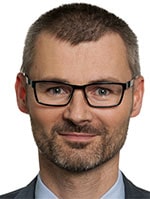
Michael Schenkel
Head of Marketing, t2informatik GmbH
Michael Schenkel has a heart for marketing - so it is fitting that he is responsible for marketing at t2informatik. He likes to blog, likes a change of perspective and tries to offer useful information - e.g. here in the blog - at a time when there is a lot of talk about people's decreasing attention span. If you feel like it, arrange to meet him for a coffee and a piece of cake; he will certainly look forward to it!
